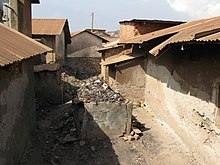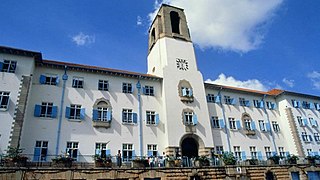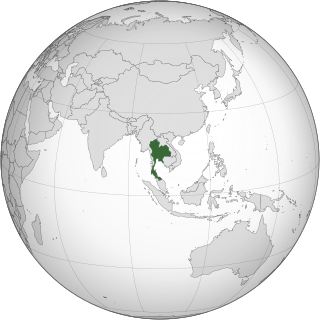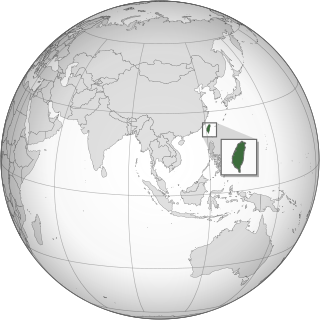


Squatting in Uganda is the occupation of derelict buildings or unused land without the permission of the owner. The complicated history of land tenure has generated conflicts between squatters and owners.



Squatting in Uganda is the occupation of derelict buildings or unused land without the permission of the owner. The complicated history of land tenure has generated conflicts between squatters and owners.
In the Bugandan Kingdom (a Bantu kingdom within Uganda) as well as other areas, the 1900 Buganda Agreement assigned land to tribal leaders under the mailo system in which land is owned in perpetuity. [1] The 1995 Constitution of Uganda mandated four forms of land ownership, namely mailo, customary, freehold and leasehold. [2] Tenant rights were then boosted by the 1998 Land Act and its 2010 amendment. [3] The government sought to regulate squatting amongst other things with the 2010 Land Amendment Act and the 2018 Landlord and Tenant Bill. [1] People occupying publicly owned land are defined as squatters. [4]
The complicated history of land tenure has generated conflicts between squatters and owners. [3] Pastoralists such as the Bahima were driven off their traditional lands when the government created ranches and nature reserves, thus forcing them to become squatters. This had generated a crisis by 1990. [5]
In 2007, Makerere University in the capital Kampala began demolishing shacks in the Katanga slum. [6] People fleeing violence in the Democratic Republic of Congo entered western Uganda in 2012 and when the refugee camps became full, they began squatting. A local administrator was killed when he went to check on the squatters. [7] Violence broke out in 2014, when Bunyoro people evicted Congolese people squatting on their ancestral lands. [8] President Yoweri Museveni asked land owners to stop evicting squatters in 2018. [9] In 2019, a Wamala landlord was hacked to death. [1] Mining companies from countries such as Spain and China have been buying up land in Karamoja for mining and thus the people living on the lands have become squatters. [10]

Squatting is the action of occupying an abandoned or unoccupied area of land or a building, usually residential, that the squatter does not own, rent or otherwise have lawful permission to use. The United Nations estimated in 2003 that there were one billion slum residents and squatters globally. Squatting occurs worldwide and tends to occur when people find empty buildings or land to occupy for housing. It has a long history, broken down by country below.

Kampala is the capital and largest city of Uganda. The city proper has a population of 1,875,834 (2024) and is divided into the five political divisions of Kampala, Kawempe, Makindye, Nakawa, and Rubaga.

Makerere University is Uganda's largest and oldest institution of higher learning, first established as a technical school in 1922, and the oldest currently active university in East Africa. It became an independent national university in 1970. Today, Makerere University is composed of nine colleges and one school, offering programmes for about 36,000 undergraduates and 4,000 postgraduates. These colleges include College of Natural Sciences (CONAS), College of Health Sciences (CHS), College of Engineering Art & Design (CEDAT), College of Agriculture and Environmental Studies (CAES), College Of Business and Management Sciences (CoBAMS), College of Humanities & Social Sciences (CHUSS), College of Computing and Information Sciences (COCIS), College of Veterinary Medicine, Animal Resources & Bio-security (COVAB), College of Education and External Studies (CEES) and Makerere University Business School (MUBS). In addition, Makerere has onother campus in Eastern Uganda Jinja City.
Brigadier Nobel Mayombo, sometimes spelled Noble Mayombo, (1965–2007), was a Ugandan military officer, lawyer and legislator.

Beatrice Atim Anywar, also Betty Anywar,, is a Ugandan politician who serves as the Member of Parliament representing the Kitgum Municipality Constituency in the 10th Ugandan Parliament. Effective 14 December 2019, she concurrently serves as the State Minister for the Environment, in the Ugandan Cabinet. She replaced Dr. Mary Goretti Kitutu, who was appointed Minister of Energy and Minerals, in the same cabinet.

In England and Wales, squatting – taking possession of land or an empty house the squatter does not own – is a criminal or civil offence, depending on circumstances. People squat for a variety of reasons which include needing a home, protest, poverty, and recreation. Many squats are residential; some are also opened as social centres. Land may be occupied by New Age travellers or treesitters.
In the United States, squatting occurs when a person enters land that does not belong to them without lawful permission and proceeds to act in the manner of an owner. Historically, squatting occurred during the settlement of the Midwest when colonial European settlers established land rights and during the California Gold Rush. There was squatting during the Great Depression in Hoovervilles and also during World War II. Shanty towns returned to the US after the Great Recession (2007–2009) and in the 2010s, there were increasing numbers of people occupying foreclosed homes using fraudulent documents. In some cases, a squatter may be able to obtain ownership of property through adverse possession.
Mailo is a unique form of land tenure in Uganda. Around 9 per cent of the country's land is held under the mailo system, which is similar to freehold. It was set up by the 1900 Buganda Agreement. Idi Amin then made all land publicly owned, and the 1995 Constitution of Uganda reintroduced mailo.

Mary Goretti Kitutu, also Mary Goretti Kitutu Kimono is a Ugandan academic, politician and environmentalist. She was appointed Minister for Karamoja Affairs on 8 June 2021, replacing John Byabagambi. She was the Minister of Energy and Mineral Development, in the Ugandan Cabinet, from 14 December 2019 to 8 June 2021. Before that, from 10 June 2016, until 14 December 2019, she served as the State Minister for the Environment in the Cabinet of Uganda. Dr Mary Kitutu concurrently serves as the elected Manafwa District Women's Representative, in the 10th Parliament.

The Ministry of Lands, Housing and Urban Development (MLHUD), is a cabinet-level government ministry of Uganda. It is responsible for "policy direction, national standards and coordination of all matters concerning lands, housing and urban development". The ministry is headed by a cabinet minister, currently Judith Nabakooba.

Judith Nalule Nabakooba is a Ugandan politician and former policewoman. She is currently the Minister of Lands, Housing and Urban Development, in the Cabinet of Uganda. She was appointed to that position on 8 June 2021.
Beatrice Nyakaisiki Byenkya is a Ugandan politician, who serves as the Chairperson of the Uganda Land Commission. She was appointed to that position on 18 April 2019. Her appointment requires the approval of the Ugandan parliament.

Squatting in Ghana is the occupation of unused land or derelict buildings without the permission of the owner. Informal settlements are found in cities such as Kumasi and the capital Accra. Ashaiman, now a town of 100,000 people, was swelled by squatters. In central Accra, next to Agbogbloshie, the Old Fadama settlement houses an estimated 80,000 people and is subject to a controversial discussion about eviction. The residents have been supported by Amnesty International, the Centre on Housing Rights and Evictions and Shack Dwellers International.

Squatting in Honduras is the occupation of unused land or derelict buildings without the permission of the owner. As the population of Honduras grew from the 1960s onwards, peasants occupied land. The Government of Honduras responded by giving peasants title to land and deporting Salvadoran migrants. The measures had limited success and in the 2010s, squatters continued to self-organise land invasions. The indigenous Miskito people are affected by squatters who practice illegal logging and drugs trafficking.

Squatting in Nepal occurs when people live on land or in buildings without the valid land ownership certificate. The number of squatters has increased rapidly since the 1980s, as a result of factors such as internal migration to Kathmandu and two decades of civil war in Nepal. In March 2021, the chairperson of the Commission on Landless Squatters stated that all landless squatters would receive ownership certificates within the following eighteen months.

Squatting in Angola occurs when displaced peoples occupy informal settlements in coastal cities such as the capital Luanda. The Government of Angola has been criticized by human rights groups for forcibly evicting squatters and not resettling them.

Squatting in Thailand was traditionally permissible under customary law and adverse possession can occur after ten years of continuous occupation. As of 2015, the capital Bangkok had over 2 million squatters, out of a population of around 10 million. A survey of slums across the country noted in 2000 that most were rented not squatted; Khlong Toei District in Bangkok contains both squatters and tenants. There are also squatters in rural areas. The 1975 Agricultural Land Reform Act aimed to redistribute land to poor people under the Sor Por Kor program and as of 2019, 36 million rai of land had been assigned.

Squatting in Liberia is one of three ways to access land, the other two being ownership by deed or customary ownership. The informal settlement West Point was founded in the capital Monrovia in the 1950s and is estimated to house between 29,500 and 75,000 people. During the First Liberian Civil War 1989–1997 and the Second Liberian Civil War 1999–2003, many people in Liberia were displaced and some ended up squatting in Monrovia. The Ducor Hotel fell into disrepair and was squatted, before being evicted in 2007. In the early 2020s, over 9,000 Burkinabés were squatting on remote land and the Liberia Land Authority (LLA) announced a plan to title all land in the country.

Squatting in Taiwan is the occupation of unused land or derelict buildings without the permission of the owner. Squatting was fuelled by migrants from China from the 1950s onwards and in addition cities such as the capital Taipei were swelled by internal migrants from the countryside. In order to create Daan Forest Park, 12,000 squatters were evicted. The informal settlement at Treasure Hill has been recognized as cultural heritage.

During the colonial occupation of Kenya, Black Africans working on farms owned by white settlers were called "squatters" by the British. As of 1945, there were over 200,000 such squatters in the Highlands and more than half were Kikuyu. The Mau Mau rebellion began amongst these squatters in the late 1940s and after independence in the early 1960s, peasants started squatting land in rural areas without the permission of the owner.